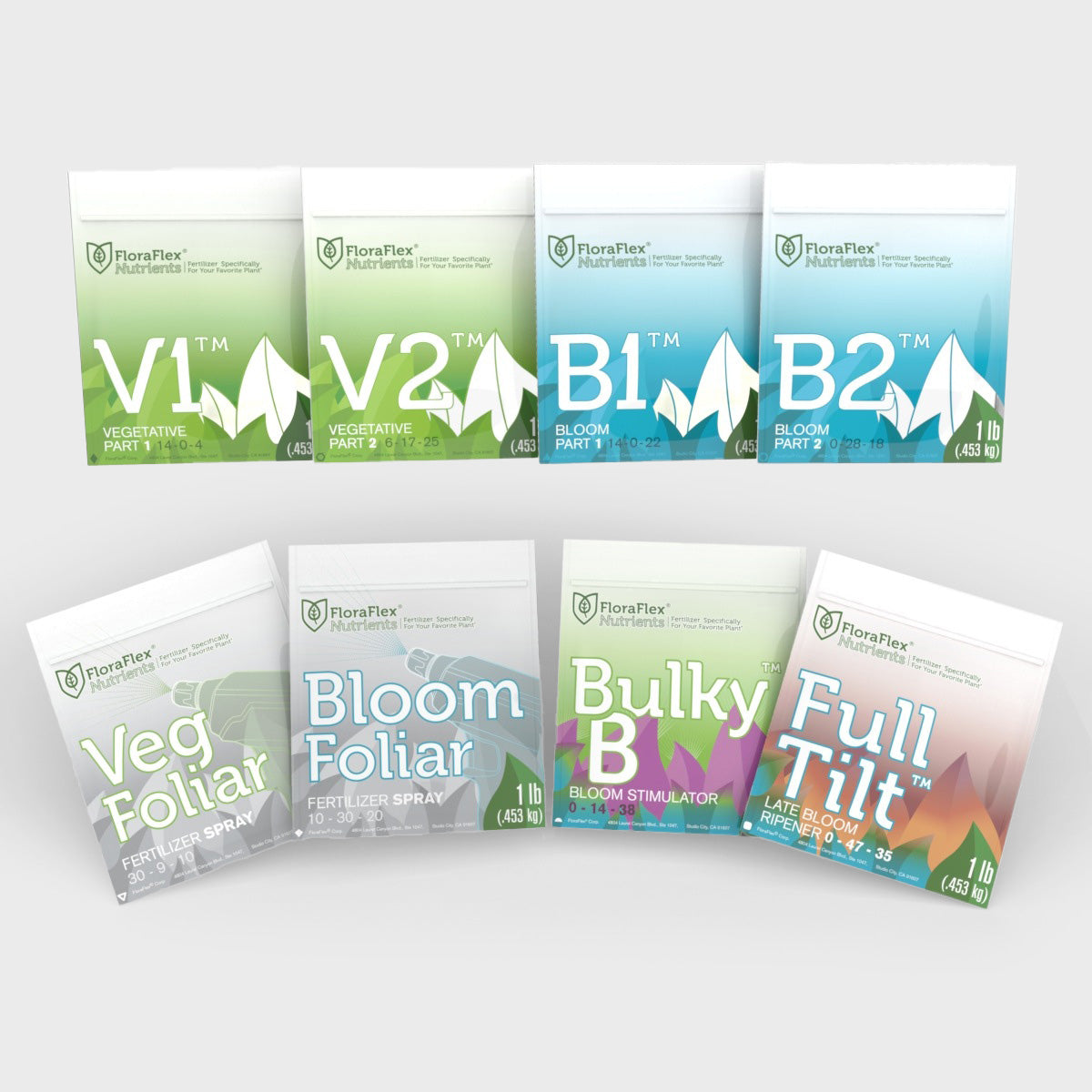Cannabis cultivation has become an intricate science involving various methods and components. Among these, the use of nutrients plays a pivotal role in shaping the health and yield of the plants. As growers strive to produce robust and potent cannabis, they often debate between organic and synthetic nutrients. In this blog post, we'll explore the differences, benefits, and drawbacks of both nutrient types, and how they impact cannabis cultivation.
Understanding Nutrients in Cannabis Cultivation
Plants, including cannabis, require a variety of nutrients for optimal growth. These nutrients are generally divided into macronutrients (like nitrogen, phosphorus, and potassium) and micronutrients (such as zinc, iron, and manganese). The source of these nutrients—whether organic or synthetic—can affect the plants in several ways.
Organic Nutrients
Organic nutrients are derived from natural sources such as compost, bone meal, and guano. These substances are mildly processed and often contain a variety of compounds essential for plant health.
Benefits of Organic Nutrients
- Soil Health: Organic nutrients improve soil structure and enhance microbial activity, which is beneficial for long-term soil health.
- Environmental Impact: As they originate from natural sources, organic nutrients are generally considered more sustainable and eco-friendly.
- Safety: The risk of nutrient burn is reduced, as organic nutrients tend to release slowly and more uniformly.
- Cannabis Quality: Some growers believe that organic cultivation enhances the taste and aroma of the cannabis.
Drawbacks of Organic Nutrients
- Slower Release: Because organic nutrients are released gradually, they may not provide immediate results, which can be a drawback in time-sensitive growing stages.
- Consistency: The nutrient composition of organic materials can vary, leading to unpredictability in outcomes.
- Cost and Labour: Managing organic nutrient systems can be more labor-intensive and costly.
Synthetic Nutrients
Synthetic nutrients are manufactured chemicals designed to provide precise nutrient combinations tailored to the needs of cannabis plants.
Benefits of Synthetic Nutrients
- Precision: They allow growers to precisely control nutrient levels, ensuring that plants get exactly what they need at various growth stages.
- Availability: Synthetic nutrients are readily absorbed by plants, making them ideal for periods requiring rapid nutrient uptake.
- Consistency: Manufactured nutrients ensure a uniform product, which translates into more predictable results.
Drawbacks of Synthetic Nutrients
- Ecological Concerns: The production and excessive use of synthetic nutrients can contribute to environmental issues such as water pollution.
- Soil Health: Over-reliance on synthetic nutrients may lead to soil degradation over time.
- Cannabis Quality: Some argue that while synthetic nutrients can enhance yield, they may compromise the nuanced flavors and aromas of organically grown cannabis.
Practical Applications in Cannabis Cultivation
The choice between organic and synthetic nutrients often comes down to the grower's goals, whether it's maximizing yield, prioritizing sustainability, or balancing both.
Combining Both Approaches
Some growers are adopting hybrid approaches, combining both organic and synthetic materials to leverage the strengths of each. Using products like the 6" FloraFlex Wool (Basalt Derived) can help integrate both nutrient types seamlessly. This basalt-derived solution aids in water and nutrient retention, offering a flexible system to experiment with both nutrient sources.
Selecting the Right System
A critical consideration when choosing between organic and synthetic nutrients is the growing medium. Hydroponic systems, for instance, often pair better with synthetic nutrients due to the precision they require. On the other hand, soil-based systems can benefit significantly from the long-term soil health benefits provided by organic materials.
Making an Informed Decision
Ultimately, the choice of nutrients should align with your cultivation objectives, resource availability, and personal preferences. Sustainable practices, such as monitoring nutrient levels and using eco-friendly products, can help mitigate some of the downsides of both nutrient types.
For more information on cannabis cultivation products, visit FloraFlex.
By understanding the pros and cons of each, growers can tailor their nutrient strategies to optimize their cannabis crops, ensuring quality and sustainability go hand in hand.









